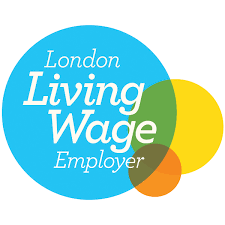At the end of 2020, 65.8% of adults in the UK owned their own home. But for many others, the dream of owning a home seems unlikely ever to come true.
Owning a home appeals to different people for different reasons. For some it is a family tradition, perhaps something to make the parents proud. For others, getting on the property ladder is a good financial investment for the future. Still others want stability for their family: the security of a roof over their heads without having to depend on landlords.
Why is it so difficult to buy a property?
Whatever your reason for wanting to own your own home, in the last few years it has been incredibly difficult to be able to get your foot onto the property ladder. The main two problems facing first time buyers are:
Having to raise a large deposit for your new home. Being approved for a mortgage for your new home.Let’s first take a look at both of these issues in a little more detail, then explain what kind of actions you could take to try and overcome them.
Having to raise a large deposit for your new home
Over the past few years, the amount of money you need to pay as a deposit on your first home has steadily increased. Before the financial crash of 2008, it was possible to pay a very low deposit or even no deposit at all. But by 2020, most mortgage lenders were demanding deposits of at least 10%, with many lenders demanding 15% or more.
According to The Nationwide, an average property in the UK costs around £231,068. A 10% deposit on a property of this value would be over £23,000. Many first time buyers have been stuck in an endless loop of trying to save up this large amount of money whilst at the same time still having to pay high rents and all their other bills. Even if they begin to get anywhere near the amount needed, chances are that property prices have risen in the meantime, so the deposit has increased even more.
Being approved for a mortgage for your new home
Even if you save enough money for a deposit, there is another obstacle to overcome: getting approved for a mortgage. You may be confident that you can afford mortgage repayments, in fact sometimes the monthly payments are less than the rent you currently have to pay. But you will still need to go through some rigorous financial checks for a lender to be willing to accept you for a mortgage with them.
A mortgage lender is likely to look at all the following aspects of your finances:
- Your employment status;
- Your income and outgoings;
- Your credit history and current score;
- Your current level of debt;
- The amount of money you want to borrow.
If there are issues with any of the above that the lender may see as a potential risk, you may not be accepted for a mortgage. Even though there are lenders who will accept you for a bad credit personal loan with a poor credit score, the situation with mortgages tends to be much less flexible. It is difficult, though not impossible, to get a mortgage with bad credit, and it may cost you more to borrow.
Three ways to help you buy a property
If you have set your heart on buying your own home, and have started saving towards this, there are three ways that you may be able to increase your chances:
The new 95% mortgage
In the recent Budget, Chancellor Rishi Sunak announced a new 95% mortgage. Until the end of 2022, the government is going to partially underwrite these new mortgages so that if anything went wrong, and a borrower could not make their mortgage repayments, the government would repay the lender an amount of money equivalent to 80-95% of the value of the mortgage. This makes it less risky for lenders to lend money.
The 95% mortgages make a significant difference to borrowers in terms of the amount of deposit needed. We saw earlier that a 10% deposit on an average value property is likely to be over £23,000. With the new 95% mortgages, only 5% deposit is needed, which reduces the amount to around £11,500.
Improve your credit score
If you think that your credit score is going to be a problem in the mortgage application process, you can take action now to start improving this. We looked at this topic in detail in our recent article How to improve your credit score.
The sooner you start working on this, the more chance you will have of being able to apply confidently for a mortgage during 2022.
Other schemes to help you buy a home
There are also various other schemes and initiatives designed to help you buy a home. Three of the most popular schemes available to first-time buyers are:
1. Help to Buy Equity Loan
This government scheme applies if you buy your home from a homebuilder registered for the Help to Buy Equity Loan scheme. You need to pay a 5% deposit of the value of the property and can then get a government loan for up to 20% (40% in London) of the purchase price of the property. The loan is interest free for the first five years. You will need to make up the remaining cost of the home with a standard mortgage, but the amount you need to borrow will be lower.
To find out more, you can contact a Help to Buy agent in your area.
2. Shared ownership
This is a way to buy a share of a property, usually between 25% and 75%. It applies both to newly built homes or an existing one through resale programmes from housing associations.from a council or housing association. You rent the remaining share of the property, and can gradually increase your share until it reaches 100%. To find out more, you can contact a Help to Buy agent, as above.
3. Right to Buy
The Right to Buy scheme enables some council tenants to buy their home at a discount. The amount of the discount depends on the type and location of the property. You can find out from the Right to Buy website whether you are eligible for the scheme.
We hope that the above information helps you to understand more about the financial issues involved in buying your own home, and how to begin to work through them.
Check back here soon for more financial and lifestyle information from Fair Finance.




